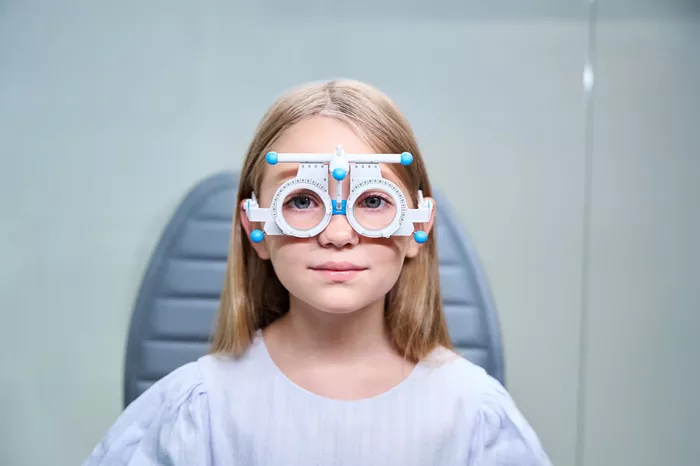The 4th Asia-Pacific Myopia Management Symposium (APMMS) took place on October 27, 2024, in Seoul, South Korea, under the theme “Myopia Reframed: Shaping the Future of Eye Health.” Hosted by CooperVision, a leader in myopia management, the symposium gathered over 2,200 participants from around the globe, both in-person and virtually. The event featured three primary sessions focused on advancing pediatric myopia management: “Paradigm Shifts in Understanding Myopia,” “Gold Standard in Myopia Interventions,” and “The Future of Myopia Management.”
Opening remarks were delivered by Dr. Seung-Hee Baek, Director of the Pediatric Ophthalmology and Strabismus Center at Kim’s Eye Hospital, and Kathy Park, President of CooperVision Asia Pacific. The symposium was organized in collaboration with the Korean Association of Pediatric Ophthalmology and Strabismus (KAPOS), highlighting a collective effort to address the increasing prevalence of myopia in South Korea and the wider region.
During her keynote address, Dr. Baek emphasized the serious implications of myopia, stating, “Myopia is not just a refractive error that reduces uncorrected visual acuity; it also creates significant social and economic burdens.” She noted that high myopia is a major risk factor for severe vision-threatening diseases, including retinal detachment, glaucoma, and macular degeneration. “As myopia becomes more common, the potential for irreversible vision loss increases,” she cautioned.
Dr. Baek highlighted alarming trends in Korea, citing data from the Health Insurance Review & Assessment Service (HIRA) that reveals peaks in retinal detachment incidences at ages 20 and 60. “In younger populations, high myopia is a significant factor contributing to retinal detachment,” she explained, advocating for early intervention in myopia management.
She noted the challenges faced in treatment, particularly in Korea, where low-dose 0.01% atropine has shown limited effectiveness in slowing myopia progression. In response to the escalating issue, KAPOS established the Korean Myopia Society (KMS) in 2023, aimed at developing national pediatric myopia management guidelines based on domestic research.
Globally, advancements in myopia management are underway, yet a unified clinical protocol remains elusive. APMMS has emerged as a key forum for sharing pioneering research and fostering collaboration among eye care professionals, researchers, and policymakers.
The symposium also featured insightful sessions from leading experts:
Paradigm Shifts in Understanding Myopia: This session focused on the latest research surrounding myopia’s causes and broader implications for vision health, including presentations by Professor Pei Chang Wu from Taiwan.
Gold Standard in Myopia Interventions: Attendees explored advanced management strategies, including innovative approaches presented by Dr. Maria Liu from UC Berkeley, who discussed megatrends and the increasing use of soft contact lenses.
The Future of Myopia Management: Experts from the Singapore National Eye Centre discussed the role of digital tools in myopia control, emphasizing the need for a standardized international framework for contact lens management.
Dr. Hae-Jung Paik, President of KAPOS and the Korean Myopia Society, remarked on the significance of the symposium: “This event has been pivotal in shaping the future of myopia management in Korea, fostering invaluable exchanges of knowledge.”
In addition, CooperVision shared findings from a seven-year clinical study on MiSight® 1 day, the only FDA-approved soft contact lens designed to slow myopia progression in children aged 8-12. With a preference for MiSight® 1 day over glasses among 90% of children, the lens has demonstrated sustained effectiveness even after treatment cessation.
The symposium also spotlighted long-term safety studies of daily disposable contact lenses, reinforcing their viability for pediatric use. Shila Gupta, Myopia Management General Manager at CooperVision Asia-Pacific, stated, “APMMS 2024 has been instrumental in advancing myopia management, reinforcing our commitment to driving progress and collaboration within the eye care community.”
The symposium concluded with a forward-looking perspective on myopia management, addressing the ongoing childhood myopia epidemic and emphasizing the importance of early intervention and innovative management strategies. The next edition of the Myopia Management Symposium (APMMS) is scheduled for 2025, promising continued advancements in addressing this growing public health concern.
Related topic:
How Do You Get Rid of Fordyce Spots Around Your Eyes?
Can You Get Eye Bag Surgery On The NHS?

